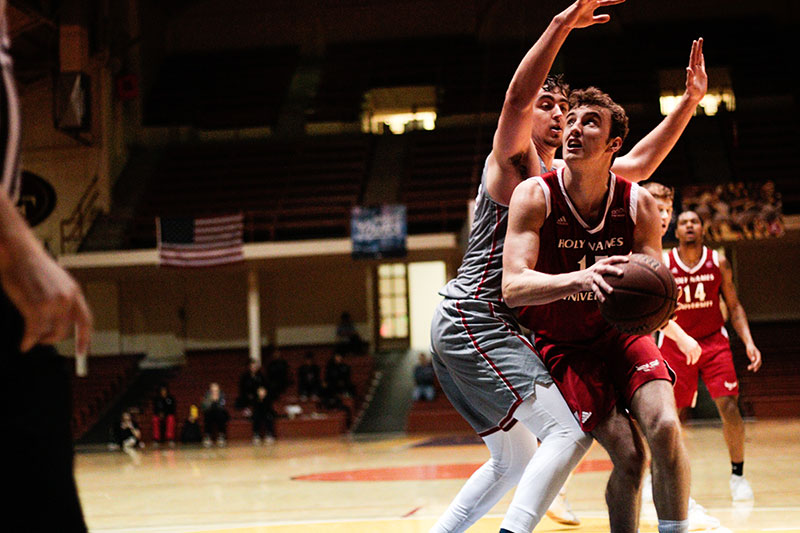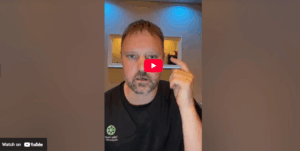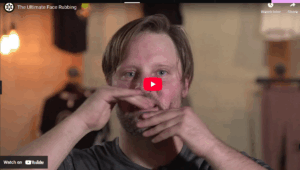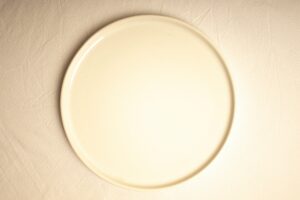An acupuncturist on a sports team isn‘t the most publicized or celebrated, the role they play behind the scenes on the medical staff and the impact they make on each individual athlete is a pretty huge one.
I want to share more with you about being an acupuncturist on a team and how you can become one too.
A Vital Member of the Coaching Staff
If you‘ve followed sports teams over the past few years, you‘ve seen the all-star, professional line-up of on-staff training personnel. In some cases, you may even have seen more staff members on the sidelines than actual players on the roster.
You‘ve got your head coach, your assistant coach, your athletic trainer, and your graduate assistants.
You have your fitness instructor and your weight trainer specialist. You have your lead scout and your sports manager, your exercise physiologist, team doctor, and nutritionist.
These teams have all these people on staff and yet—no acupuncturist.
Well, let‘s hope they make room because with you—it‘s all about to change.
Whether your local winning high school football team practices down the street from your house or you‘re willing to drive several miles in search for your new job, your ability to practice sports acupuncture can be the key to pinning your place (excuse our pun) in a new position on a sports team.
From high school to professional sports and everywhere in between , being a team acupuncturist can help you bring something new (and extremely useful) to the—medical—table. Your practice can help them practice, with a skillset that can be an incredible asset to your favorite local team.
Highlighting what you bring to the team can help you land your new position but getting your foot in the door, well, that‘s where we come in.
How to Introduce Acupuncture into Multi-Disciplinary Sports
The integration of acupuncture into sports medicine can be the difference the team needs as far as promoting and caring for an individual with client-centered performance.
Especially in team-centered sports, the needs of an individual are sometimes lost in the overall goals of the group. This is unfortunate because although team statistics make a difference in the season, an individual‘s performance can make a difference in the game.
However, with a service like acupuncture, a client-centered model of practice can be implemented and emphasized as a focus on the individual‘s performance and not just the team performance as a whole.
As sports research increases, the role of an individual is becoming more and more centralized. With that increase in individual need, from amateur to professional sports, the need for an acupuncturist (and not just someone that can practice it), is also becoming more and more prevalent.
By taking a quick weekend course on acupuncture, any old athletic trainer can take your place crowd-surfing throne at the end of the game. Don‘t let them—your time has come.
Local teams everywhere are in need of your practiced hands and your invaluable services to the everyday or professional athlete.
In this article, we‘re not only going to show you how to introduce yourself as a vital member of the coaching staff, insert yourself into this open playing field, and help you land the position of your dream job, we‘ve also got the sources to back up our claims.
From first-hand accounts of coaches telling you how to best approach the position, athletic trainers and assistants sharing how to contact their departments, and actual acupuncturists who have been in your shoes, we have everything you may need to know before you prepare for the interview that can make your dream job come true.
You‘ll be reading testimonials from an acupuncturist on his own stories and recollections of how he has successfully implemented his skillset into prominent universities and sports teams.
Our collection of professionals in the field today can help you witness and follow the stories of personal experiences working with individual athletes and college teams, as well as interviews with health professionals, athletic therapists, coaches, and assistant directors.
History of Sports Teams Medicine
Before we dive into how you‘re going to make a statement of the acupuncture movement in today‘s sports world, let‘s take a look at what we‘re up against in the already-present medical staff of the average sports team.
Especially in a professional or high-level sports atmosphere, the most common practitioners of acupuncture have been left to the devices of physicians and physiotherapists. These primary healthcare providers and rehabilitation-centered practitioners have been known to whip out the acupuncture needles a time or two.
And although the profession of athletic therapy has seen an increase in popularity, whether through the choice of study or through team hiring, not all athletic therapists are studied or fully-certified in acupuncture.
As a former professional athlete who was lying on the medical table too many times to count, I would have definitely felt more confident in the hands of a certified acupuncturist—especially if those same hands were also holding quite a few very long, very sharp needles.
With the primary responsibility of on-site care at all times during competition and in training, the athletic trainer (normally partnered with a graduate assistant) has a lot on their hands. Not only are they responsible for so many different medical aspects, but they are also normally the only ones on-site that have the credentials to help out in a medical situation.
Especially in high school sports or with low-budget or lower-ranked university sports teams, you will normally only see one person on-staff during travel practices or those god-awful, 6 a.m. workouts that no assertive physical therapist professional would want to wake up for (especially since most of the time they just tape ankles and then sit for the remainder of the training).
However, in most cases, these certified individuals present—although very practiced in their field—are not completely adept or proficient in acupuncture as you are.
And although physiotherapy has evolved and expanded its scope of practice by establishing a sports physiotherapy specialization which includes the advanced training in dry needling, you all know that they can‘t truly replace what you do. But they will definitely try to slide you off the table (figuratively, of course)!
So, before they completely take you off the map, get in there, needles up, and take back what‘s yours.
Overcoming Acu-Obstacles
You, as an acupuncturist, know that what you do is powerful. Unfortunately, the system as a whole in sports medicine is not so keen to letting you on the team.
Since you are taught a complete system of medicine, you can even consider yourself over-qualified for the sole practice of acupuncture. However, this means that your entire scope of practice can overlap with others. This is what makes it tricky. This is what brings in a sort of “gray area”.
Here are some obstacles you may have to overcome:
1. Asserting yourself into the mix can step on some toes
A massage therapist is welcomed into a team of sports physicians with open arms. Since most athletic therapists and physiotherapists have their hands full (quite literally), they are more open to passing on the service of massaging their athletes to more open and empty hands. Especially since it only encompasses the one task of massaging, a massage therapist‘s service doesn‘t jeopardize any scope of the roles of a different therapist.
Acupuncture, on the other hand, does.
Although you are practiced in acupuncture, your knowledge and services move also well-past it, handling practices that don‘t just succumb to needles—which is just the “tip” of what you can do.
This means that your services will overlap with the roles of other medical professionals on-staff. Which also means, you might not be as welcomed into a team who sees your versatility as a threat.
Since the skills of an acupuncturist also encompass those of most therapeutic professions, most notably of physiotherapy, you can be often referred to when they need any type of a range of therapies.
This may cause tension in the workplace, setting the stage for a complicated web of occupational demands, professional relations, and practice settings.
2. You‘re not taken seriously.
In most cases, most Sports Medicine Professionals don‘t see acupuncture or those who are specialists of it as a real need in sports. Acupuncturists are cast-aside as “Manual Therapists”, specializing in a service not seen as commonly needed in most sports.
Other sports medicine practitioners see what you do as simply just a single form of treatment, not realizing that what an acupuncturist does isn‘t the same as what they are.
Not realizing that what an acupuncturist does stems from a different philosophy of medical care.
Not realizing what you as an acupuncturist can truly do.
Especially since this view isn‘t the most welcoming, you might have to overcome a few un-friendly, pre-determined mindsets about who you are and what you can offer a team. Fortunately, you have been trained as a primary caregiver at your home practice, which means that you‘ve got your mind right—seeing yourself as an all-encompassing entity.
3. You‘re seen as a threat.
As soon as the other staff members on the team recognize what you can do, they might not like that you can actually take care of some of their roles for them.
Since an acupuncturist can treat patients and players more ways than one, you‘re not just seen as a new member of the team, you‘re seen as their biggest rival player.
Although these pre-determined opinions about who you are and what you do may leave a heavy chip on your shoulder, you need to know what you‘re up against before you head into an all-out sports medicine war.
It‘s important to have the right mindset—no matter what the case may be—so you can approach the setting in a calm, educated manner and get you that position on the team.
You also might see this as a turn-off to being part of a team. However, there are so many benefits to asserting yourself as a prominent staff member of an all-star sports medicine lineup.
Benefits of Being Part of a Team
Although you might not be up to the challenge, being part of a team—on a team—working for a team—can be extremely fulfilling.
Especially if you have been a solo practitioner for the majority of your medical career, getting into sports medicine on your local sports team or a professional club can be a great way to be a part of a group of like-minded people who all have one goal in common: the ultimate health for each patient and getting them to perform pain-free.
No matter what sport you may be working with, the well-being of each individual athlete is important. Your role as a member of a sports medicine team can help you not only focus on the needs of a player but also be a part of a team that can take care of the entire group as a whole.
With an on-team position, you will:
- Have security in your job—once they see the necessity of your position and how you can help the individual athlete.
- Have a common goal in mind and work with others to get to it. This team atmosphere can truly increase the feeling of fulfillment in your work.
- Work from an individual standpoint and a team standpoint—you get the best of both worlds.
- Have other people on-staff that can not only back you up but also partner with the treatment you do.
- Be a part of a great cause—helping athletes do what they do best.
Ready for Tryouts? The Coach Will Be Evaluating You
If you‘ve ever been an ex-athlete, you know how nerve-racking a tryout can be.
Before the day comes, you probably trained to your best abilities, prepared by eating a proper meal, stayed hydrated, and hoped you fit the bill according to what the coach was looking for.
Well, what if we told you we have the exact checklist of what the coach will be looking for in a new member of their medical staff?
You already have the odds stacked up against you, so, you might as well prepare yourself to take on the job:
- Make sure you are ready to work as a team player. Just like sports, an acupuncturist on-staff needs to be willing to lay down his or her pride to take on whatever task the team may need.Especially as the all-encompassing medical professional that you are, this shouldn‘t be too hard since you are well-established with the training, education, and experience to handle most types of treatment.If you‘ve been practicing solo for quite a while (or your entire career), being part of a medical team might be a brand new situation for you. However, if you see your skillset as one functioning part (a very important one) of a fully-encompassing and well-equipped machine, this can help you get that team mindset and work with it.
- You need to be able to work with clear boundaries. Especially coming from your own business or working in an acupuncture-only clinic, you might not be used to someone telling you what you should or should not do. However, as a sports acupuncturist, you need to be able to work within a team‘s framework.Keeping the athlete‘s concerns at the forefront of everything you do can help you stay within clearly-marked boundaries that staff may appoint to you. Each practitioner on-staff complements one another, not only through the scopes of their practices but also through the hierarchy of the physicians and other members on the team.Normally, you have to be okay with the physician having ultimate authority and say.This may mean hanging up your crown as King practitioner and replacing it with the armor of a knight or even the rags of a peasant (grim metaphor, I know). However, to humble yourself, take directions, and being responsible for less than you are actually capable of are all the not-so-fun but very important parts of being on a team.
- Be ready to travel—and to not travel. In most cases with teams, there will be an away game, tournament or need to train off-campus or far away from home.As an acupuncturist, you might find yourself in one of two roles: either a part of on-site emergency care in competitive settings or staying in the back and dealing with management of long-term or short-term injury in rehabilitation settings.Most likely, (depending on the staff-size and availability), your medical spectrum will be assigned to out-of-competition injury rehabilitation and prevention. However, it is part of your role as a sports acupuncturist to be ready to fill the shoes of whichever pair you‘re given.
Did You Make the Cut? Everything You Need for the On-Team Roster
Let‘s say you got your foot in the door and the on-staff leader or appointed head coach is beginning to communicate with you about the possibility of being the newest member of their sports medicine team.
There are a few things you need to be aware of and make your mind up about before you pack your medical kit and bring it to the athletic clubhouse.
First and foremost, being aware of your predicament and placement in a team is important.
In most professional sports teams, the staff includes members of medical and health professionals. When it comes to acupuncturists, an athlete will often be referred to one off-site who runs his or her own independent practice. Knowing this before you head off for your first day can be extremely helpful.
You will need to know how you want to perform or offer your services before you pitch your presentation. To help you out, here are a few things you ought to know.
Acupuncture can be taught in a couple of different ways. You can either present your services through:
- Treating athletes at a private practice in your own offices. The team will work with you through referral from the AT, PT or MD on-staff.This type can benefit you through its flexibility and working from your “home” or main offices. In general, it is also pretty adapting to your particular style, location, and care.
- Treating athletes at their on-site facility. This is the most recommended way to truly be a part of the team. If you‘re going to go ahead and make the commitment to be on a sports team medical staff, you will want to be thought of as a primary form of care instead of an afterthought referral.This type makes you accessible and hands-on. The athletes will see you much more often, thus creating a link in their mind about you being an everyday member of their team.To be seen as a part of a group and being accepted fully into an already-formed medical gang, it truly is about presence. You will need to know if you are willing to make the sacrifices to be physically supportive and there on-site when needed.
The structure of sports medical staff and systems are different from school to school, team to team, and also can differ based on athletic level or competition.
This can also help prepare you for what‘s in store for your typical workday. If you are wanting to commit to something once or a couple of times a week, you might not want to apply for a professional or division one athletic-level team.
The structure of the sports systems can be defined as followed:
High School and Smaller Colleges
- Won‘t have such a huge budget for the sports medicine staff and might not be accepting an expansion of more roles on the team.However, if an opening is presented, an all-encompassing professional like an acupuncturist (YOU), can jump right into that role and even present a benefit of knowing more than just the standard forms of treatment.
- Who to Contact: With high schools and smaller colleges, your initial contact should be with the Athletic Trainer or the Physical Therapist on staff.They are often responsible for multiple sports, (possibly) hundreds of athletes, and are generally overwhelmed with the need for more helping hands. They will normally have an athletic director as head of the medical team (and everything else).This director won‘t be familiar with medical knowledge him- or herself but is in charge of contracting and assigning personnel for medical care. This will be your go-to guy or gal for your contract.
Amateur, Division One Collegiate, and Professional Level
- Will generally have much more money to support a bigger or more advanced Medical Team, thus making them more open to taking you on as an acupuncturist and as a full-fledged member of their staff.
- You‘ll most likely be working under the team‘s MD or PT, which will decrease your scope of practice. You‘ll also have to be able to communicate in “western terms” and work as a team.
- Who to Contact: Your point-of-reference will be getting in contact with the Medical Director.This director is in charge of not only the team of Athletic Trainers but also of Physical Therapists, Psychologists, Massage Therapists, and the coaches.
In general, getting your foot in the door is important. However, how you lodge your therapist, not-so-stylish clogs in there is also key to the beginning of a successful partnership.
Other Ways You Can Make Contact
You‘re in luck—as we mentioned before, these teams and positions exist to care for the athlete. An athlete-driven career is only as successful as the athletes themselves. Not only does this mean that the athletes have to perform well to make the entire team successful, but they also have to have the motivation to get better or to have optimal services available to them (like yours).
Fortunately, building your network (not only through LinkedIn, but through real-life connections) with athletes and coaches can truly help you in getting an introduction to the Medical or Athletic Director. If the athlete or coach sees a need for your service, they can help be the liaison to your next job interview.
Of course, contacting the Athletic Director or Medical Director Office Assistant directly will get you a quicker response. However, having an on-team member, who is already valued at the organization, referring you can help your chances of marching on into the office.
Nailing Your First Practice: Pierce Them With Your Presentation
Whether you‘ve just been hired and need to make your first impression a great one or you have this one last opportunity to make your case to the hiring staff, there are two types of presentations that should and need to happen.
These presentations are vital to the integration of your role into the team and as the newbie on-staff. They are:
Presentation to Other Healthcare Professionals
Whether they are on staff as your equals or evaluating you as your superiors, this presentation can make or break how they view you in the workplace.
Make sure you are founding this proposal on professionalism, medical experience, and background knowledge.
You should use this as a full-on opportunity to dive into acupuncture, how it works, relevant research, and all kinds of statistics supporting acupuncture and its benefits with athletes.
You need to emphasize your ability, willingness, and how the team can profit from the compatibility of your services, which are complementary of theirs (that you are not coming in trying to take their place).
You need to define your expectations, motivations, and goals as a new member of this staff and what you can get out of it (like advertising or experience), as well as what they can get out of you.
Presentation to the Athletes
Most athletes (and people in general) are not very keen when it comes to needles, pricking, poking or anything sharp.
They are also hesitant as patients when a practice comes into play that is unfamiliar to them—like acupuncture might be.
This presentation can help you not only introduce yourself and what you do but also familiarize the athletes about how your services can benefit them. It will definitely help those needles look less scary!
You should be emphasizing not only how acupuncture works but also how it relates to them. The athletes need to know how it can help their performance, how it alleviates their injuries, and how acu-awesome it is. Use specific examples and truly tailor it to their individual goals as athletes.
Introduce acupuncture as a form of treatment and what to expect. If you are working off-site at your own practice, make sure they know your information: address, hours, ways of contacting you, etc.
Especially since acupuncture isn‘t such a widely-used type of treatment, athletes might not even be familiar with it, decreasing the chances of them coming to you for treatment. This presentation can help you open those doors and start to build that connection between their needs and your services.
First-Hand Accounts and FAQs
We know that this might have been quite a lot to take in. We also know you most likely have some questions.
Which is why we‘ve put together real-world answers to your most frequently asked questions. Answers by acupuncturists and other professionals like you, who have already gotten their feet wet in sports medicine.
What would be the best way for an acupuncturist to approach you if they are interested in working with you?
- Avoid cold calls if at all cost possibly. The best place to start is by asking your community and current patients. Who do you know who dances in the Oregon Ballet? Who do you know that plays for your local sports team? The first step is to just start the conversation with people. Let the world know what you want. Once you have a warm lead, you can use that person’s name to open the door. It is incredible valuable, because people will listen to you when they have a little trust in you. “ I have been working with X and I have found that acupuncture is the most effective tool for recovery and rehabilitation.” That will lead you into other opportunity for presentation or face to face contact. If you do have to do a cold call. Call and ask if they take presentations. “Acupuncture is such good medicine for your athletes can I come and talk to you team about the benefit of Acupuncture.” You could even ask to take the Athletic Trainer out to lunch to learn more about what they do, if asking for a presentation seem like too much.The biggest hurdle for you to overcome before you reach out sports teams is get through the tenderness and vulnerability of being scared that you will upset them or be judged about being an acupuncturist and the medicine.-Jason Stein, Coach of successful entrepreneurs and small business owners
- I think what works for me is to come to campus or initially an email which clearly stated the focus of the visits or work to be done… is it research, is it business expansion, is it development of clientele base, is is reaching out to new group of clients – age, athletic etc.-Jayme Frazier, LBCC Roadrunner Women’s Head Volleyball Coach and full-time faculty for the Health & Human Performance Department.
- Honestly, if you hadn’t given us a full presentation like you did, I am not convinced I would of followed through with believing you could help our athletes. After hearing your presentation, I was able to clearly see your professionalism, medical background knowledge and your character. That presentation led me to be more interested in the value of acupuncture for athletes.-Debbi Herrold, LBCC women’s Head Basketball Coach
- An acupuncturist should contact the athletic department or athletic director and request a meeting with the athletic director. During the meeting the acupuncturist should present the benefits of acupuncture for athletes and ask if they can make a presentation to coaches and coaching staff at a department. I would expect coaches and coaching staff to be enthusiastic about the benefits of acupuncture but the final decision will be made by the athletic director.-Gayle Rushing, LBCC Administrative Assistant
- I guess I would first say that they shouldn’t approach teams directly. There is staggering variety of professional relationships when we look at medical interventions and athletes. High school programs will be dramatically different than college teams and professional organizations will offer even more variety with regards to these relationships.The advice that I would give to practitioners interested in working with athletes would be to start with the person that coordinates the health care personnel for the given team or organization. For high school athletes this would generally be the athletic director for the school… For professional organizations (college, NFL, NBA, MLB, MLS, etc.) I would contact the Medical Director.The contact should be more introductory than anything. I really wouldn’t spend a lot of time, just a quick email introducing yourself, a bit of background, any relevant research that provides strong evidence in support of acupuncture and an offer to help in any way possible.This may seem dismissive or negative but let me explain:
1. These positions (if a position even exists) are usually filled by multidisciplinary practitioners (Chirporactors, Physical Therapists, Massage Therapists) that simply “add” needling therapy to their treatments. If there isn’t anyone that is providing acupuncture in the organization there can often be a bias against it. If not, great! You’ve made an introduction and offered your services.
2. Depending on the league and the organization of medical staffing, Acupuncture specific positions either do not exist or they are already filled… In these environments, the players are often left to seek out treatment on their own (this is common in the NFL and MLS). So there really isn’t direction by the team or organization to go to person X for care.
As for my experience, I have been working with MLB players, Seattle Seahawks and Seattle Sounders now for 4 years. Even after all this time, there is no full time contracted position with the Seahawks or the Sounders. The players come to me because the Medical Director or other players have referred them to me. These relationships had nothing to do with a formal introduction or contact with the team. In every case the referrals came from treating someone who knew someone who knew someone…
I do not believe that this is how things should be, I believe that all teams and organizations should staff acupuncturists full time… Unfortunately that is not how it is.
–Jason M. Landry EAMP, Licensed practitioner and the owner of Lake Washington Integrative Medicine
What concerns do you have about using acupuncture to support your team and players?
- Initially, I was wondering how we could meet the needs of the student athletes as a larger group and then be able to give each specific individualized time to make a difference. I also felt like I needed to plug the business some so that it made it worthwhile for the clinician. That was just my own feelings of guilt that this process might have been taking too much of your donated time. Also, I believe that I was not educated initially on the benefits of acupuncture – so there was reserve and hesitation that it would actually work…especially if used in place of formerly used modes of pain relief or recovery.-Jayme Frazier, LBCC Roadrunner Women’s Head Volleyball Coach and full-time faculty for the Health & Human Performance Department.
- I wouldn’t really have any concerns. I feel like we really had the best of both worlds. Our athletes were able to be treated with acupuncture, and still have the services of an athletic trainer as well. I do believe the athletic trainer and the acupuncturist have to respect each others profession and what each can do to benefit the athlete. Working together as a team is best for the athlete.-Debbi Herrold, LBCC women’s Head Basketball Coach
- It’s very important that the ACT knows what every athletes is doing. The ATC is hired to be the coordinator of the athletes care and communicate with the coaches. If there is not communications between the ATC and the care providers the athletes are seeing it is very hard to coordinate it all-Erin Scharer, MS, ATC, Athletic trainer at LBCC and former Coordinator of Sports Medicine, Athletic Trainer at Willamette University
- From an administrative viewpoint, the biggest concern would be liability so the acupuncturist will need to show proof of insurance coverage along with qualifications.For the student-athlete, acupuncture is not always covered by personal medical insurance or a college’s medical insurance plan so the student-athlete may be liable for any charges resulting from acupuncture care.-Gayle Rushing, LBCC Administrative Assistant
- The only voiced concerns from the medical staff (outside of the obvious request not to injure players) have been related to the communication with each individual player. I have often been directed to withhold any specific concerns that I may have about the potential for re-injury or full fitness. Teams want the players to have a positive outlook and mindset about their recovery. They do not want anyone to undermine the confidence that is necessary for these athletes to perform at their maximum potential.As for the athletes themselves, If they don’t like the therapy or treatment they won’t return. They know their bodies and they have received an enormous amount of medical care at the professional level. If you’re good they will know, if not they won’t come back.-Jason M. Landry EAMP, Licensed practitioner and the owner of Lake Washington Integrative Medicine
What are the two biggest hurdles with added acupuncture as part of your program?
- Time as a larger group to meet specific needs and cost. I knew that if we were to go with this fully, there has to be a large cost commitment in an already strained budget. And.. deep down I did worry about whether or not one of my athletes might have some type of physical or emotional reactions to the therapy.-Jayme Frazier, LBCC Roadrunner Women’s Head Volleyball Coach and full-time faculty for the Health & Human Performance Department.
- Time to squeeze in treatment amongst school, practice, study hall, physical therapy (athletic trainer exercises if they are involved). Fear of needles some people have.-Debbi Herrold, LBCC women’s Head Basketball Coach
- I think just making sure the care fits properly into the sports schedule. Don’t want an athlete to get a treatment on the day before a game that is going to make them very sore. Coaches get pretty upset about that.-Erin Scharer, MS, ATC, Athletic trainer at LBCC and former Coordinator of Sports Medicine, Athletic Trainer at Willamette University
- Cost to the college to potentially add an acupuncturist to their payroll.Cost to athletes if acupuncture services are not a covered medical charge with personal medical insurance-Gayle Rushing, LBCC Administrative Assistant
- The biggest hurdle without a doubt is scheduling… The players are BUSY you have to fit treatment into their schedule and not your own. For me this has meant flying back to Seattle from holiday vacations early , coming in to the office on days off or staying late into the evenings to accommodate the players availability.Another hurdle can be the medical staff for the team. For example, I had a player with a grade 2 strain of the medial gastrocnemius. I was directed to treat that and that only. The player was giving me a history that sounded more like recruitment abnormalities and there was obvious atrophy. The medical staff had already “ruled out” any spinal pathology. After treating the lower leg with limited improvement, the low back was finally re-evaluated and nerve root impingement was diagnosed. If this were my patient I would have referred them for a second opinion with a spinal specialist after the first visit. I raised my concerns with the medical director… My instructions were to stick with the lower leg and they would re-evaluate the low back if. need be.
–Jason M. Landry EAMP, Licensed practitioner and the owner of Lake Washington Integrative Medicine
Do you have any other thoughts or suggestions for acupuncturist?
- I do know that it was very helpful to have the education along with the sessions. It educated the athletes and made them a little more accountable for their own health and opened their eyes to another form of therapy / recovery etc.-Jayme Frazier, LBCC Roadrunner Women’s Head Volleyball Coach and full-time faculty for the Health & Human Performance Department.
- Talk the athletes through the acupuncture procedure step by step. Teach them why you are doing what you are doing. A committed athlete will want to know everything they can about moving beyond injuries or regaining 100% function. The athletes themselves will be the best voices for acupuncture and its benefits.-Debbi Herrold, LBCC women’s Head Basketball Coach
- If they want to be accepted into a program it really important to understand that the ATC needs to be in the loop.-Erin Scharer, MS, ATC, Athletic trainer at LBCC and former Coordinator of Sports Medicine, Athletic Trainer at Willamette University
- I definitely heard a lot of positive comments and feedback from coaches, coaching staff and athletes as to the benefits of acupuncture. Acupuncture complimented the athletic trainer services and provided athletes another method to treat injuries.-Gayle Rushing, LBCC Administrative Assistant
- My take home for all acupuncturists is simple. BE GOOD AT WHAT YOU DO. Always push to learn more, improve your technique, sharpen your diagnostic skills and never believe that you have it all figured out. There will always be opportunities, some you may not be ready for and that’s ok. With hard work and a lot of effort you will eventually be more than good enough to take advantage of the opportunities when they come-Jason M. Landry EAMP, Licensed practitioner and the owner of Lake Washington Integrative Medicine


 Willard Sheppy is a writer and healthcare practitioner who seamlessly melds scientific knowledge with practical applications in engaging and authoritative articles. He holds a Bachelor of Science in Environmental Science from Oregon State University and a Master’s in Acupuncture and Oriental Medicine from the distinguished Oregon College of Oriental Medicine.
Willard Sheppy is a writer and healthcare practitioner who seamlessly melds scientific knowledge with practical applications in engaging and authoritative articles. He holds a Bachelor of Science in Environmental Science from Oregon State University and a Master’s in Acupuncture and Oriental Medicine from the distinguished Oregon College of Oriental Medicine.




